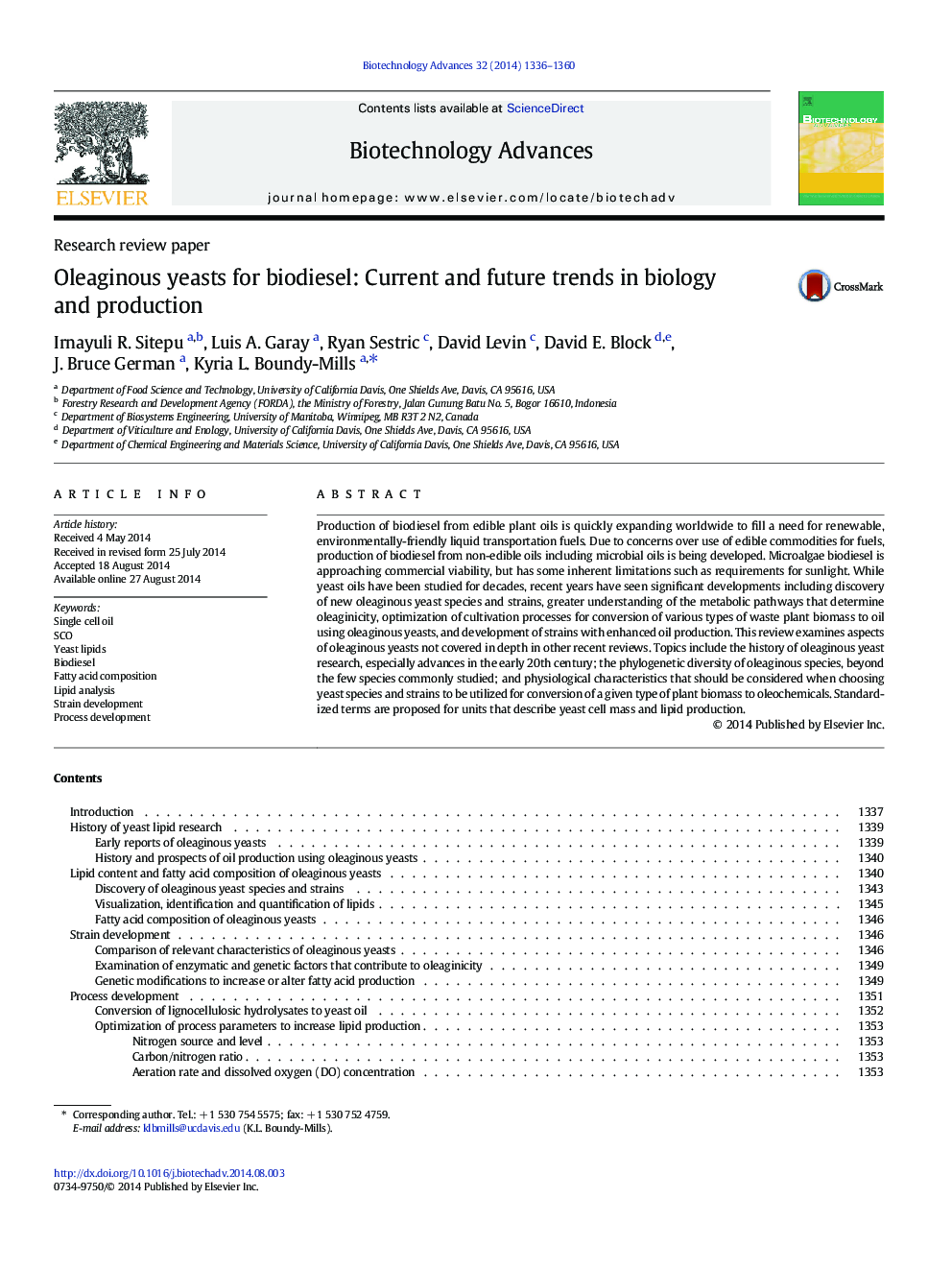| Article ID | Journal | Published Year | Pages | File Type |
|---|---|---|---|---|
| 14253 | Biotechnology Advances | 2014 | 25 Pages |
Production of biodiesel from edible plant oils is quickly expanding worldwide to fill a need for renewable, environmentally-friendly liquid transportation fuels. Due to concerns over use of edible commodities for fuels, production of biodiesel from non-edible oils including microbial oils is being developed. Microalgae biodiesel is approaching commercial viability, but has some inherent limitations such as requirements for sunlight. While yeast oils have been studied for decades, recent years have seen significant developments including discovery of new oleaginous yeast species and strains, greater understanding of the metabolic pathways that determine oleaginicity, optimization of cultivation processes for conversion of various types of waste plant biomass to oil using oleaginous yeasts, and development of strains with enhanced oil production. This review examines aspects of oleaginous yeasts not covered in depth in other recent reviews. Topics include the history of oleaginous yeast research, especially advances in the early 20th century; the phylogenetic diversity of oleaginous species, beyond the few species commonly studied; and physiological characteristics that should be considered when choosing yeast species and strains to be utilized for conversion of a given type of plant biomass to oleochemicals. Standardized terms are proposed for units that describe yeast cell mass and lipid production.
